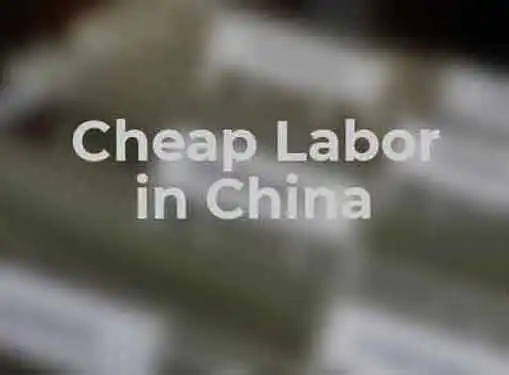Doing Business in China
Cheap Labor in China
Written by Bobby Jan for Gaebler Ventures
China is one of the most exciting places to be for an entrepreneur. This article discusses China's greatest competitive advantage
Globalization is sweeping the world, and whether we like it or not, the United States is becoming more and more a part of the global economy rather than the global economy.

It is not news that the fastest growing, up-and-coming economic superpower is China. With a population of over 1.3 billion people and a per-capita GDP growing at a rate of more than 9%, the fastest in the world, it is not hard to see why China might be the place to be for American entrepreneurs.
Perhaps China's greatest competitive advantage and the catalyst for its growth is its cheap and highly skilled work force.
Indeed, China has historically been the most populous nation in the world.
Today, China has a population of 1.3 billion people, or about 4 times larger than the population of the United States. Compared with most other developing countries, the Chinese population has a much higher literacy rate (for example, China's 91% versus India's 61% according to the CIA World Fact Book).
Not only is China a country with very cheap unskilled labor, it has a huge reserve of highly trained labor too.
What this means is that no matter what kind of labor you need for your business, China has the right pool of labor for you. For example, one of Microsoft's most productive R&D centers is located in Beijing and staffed with Chinese engineers!
Chinese labor, however, is no longer as cheap as it once was due to competition for both skilled and unskilled labor, a trend towards increasing unionization, the weakening dollar, and other factors.
Although the price of labor is increasing, which is a natural response to increasing standards of living in China, the idea that China is quickly running out of competitively priced labor is a false one.
China's current labor force is a little over 800 million. Over 40% of those 800 million workers still work in agriculture. This means over 300 million Chinese workers are still low tech farmers, a number that is greater than two times the total work force of the United States. The United States, a net exporter of agriculture, only needs less than half of one percent of its population to be employed in agriculture.
Think about it. China will not run out of cheap labor any time soon.
While farmers are becoming migrant workers, traveling to large cities to seek employment in factors and other jobs requiring manual labor, Chinese colleges, universities, and vocational schools are manufacturing scientists, engineers, PhDs, doctors, and other white collar professionals around the world.
Perhaps contrary to conventional wisdom, according to the CIA World Fact Book, the "managerial, professional, and technical" sector employs more than 50% more of the Chinese population than the "manufacturing, extraction, transportation, and crafts" sector.
Cheng Ming (Bobby) Jan is an Economics major at the University of Chicago who has a strong interest in entrepreneurship and investing.
Share this article
Additional Resources for Entrepreneurs

It seems that any discussion about low wages in China needs to take these fringe benefits into account because they contribute to a higher actual wage level.